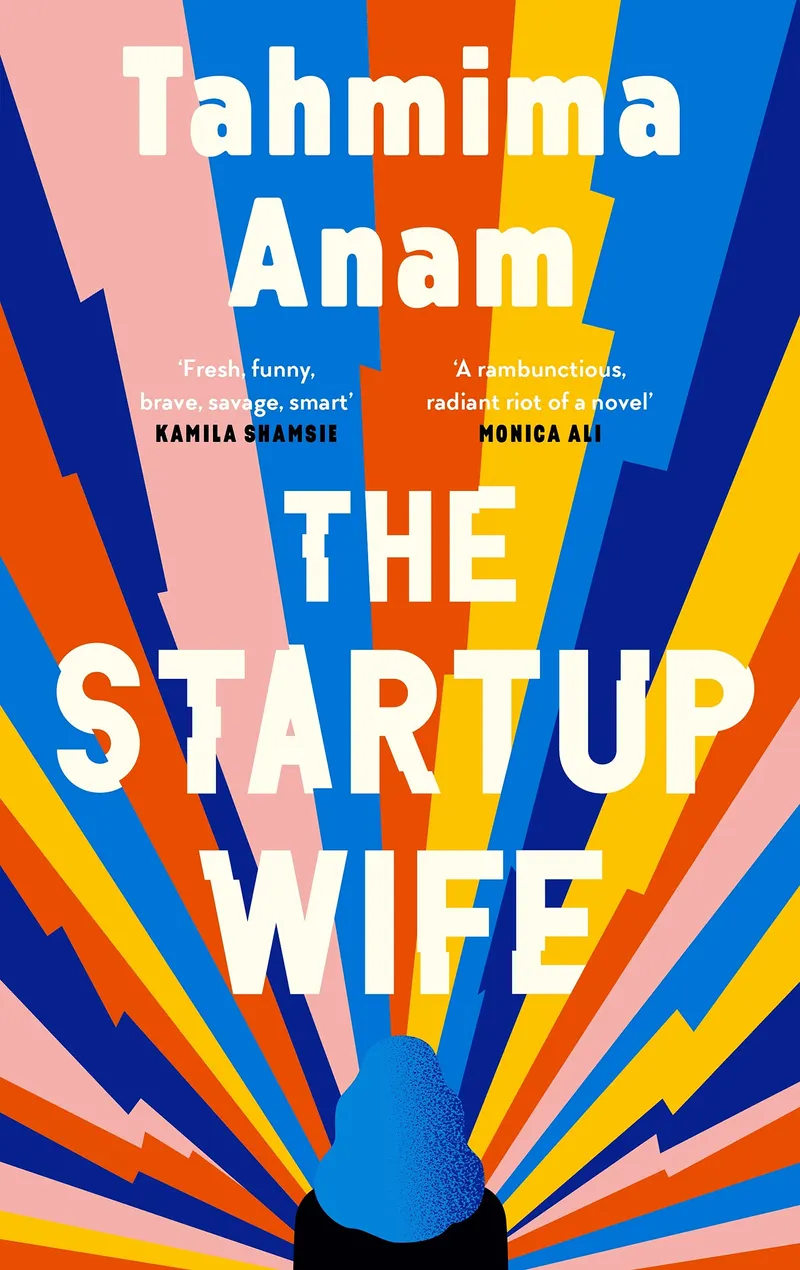The comedy almost wrote itself, because the tech world is so ripe for satire, says Tahmima Anam on her new book, The Startup Wife
The Startup Wife, a novel by Tahmima Anam, is a satirical take on starting up in the tech world and an interplay of how relationships work.
In 2020, Bangladesh-born British writer Tahmima Anam created a fake website that showcased a secret incubator called Utopia and its fictional startups. It caught the attention of some investors who didn’t know it was fake.
The fictitious company was called EMTI and was part of an elaborate satire by Tahmima before she set out to write her novel, The Startup Wife. Published by Penguin Random House, it's quite a departure from her earlier work – a trilogy based on the Bangladesh war.
The new book is a comical and satirical take on the tech startup world – with its cast of quirky but interesting characters.

Asha Ray, a brilliant coder, is Tahmima’s protagonist, who leaves her PhD programme behind to team up with high-school crush-turned-husband, Cyrus Jones, and her friend Jules, to work on a new social networking app at an incubator called Utopia. But when the app, WAI (We Are Infinite) soars in popularity, the tide turns completely in Cyrus’ favour?. Will their marriage survive? What will fame do to the trio?
Read about all this and more in this blisteringly, funny novel with his sharp takes on sexism, faith and the startup-culture.
In a conversation with HerStory, author Tahmima Anam speaks about the book, its interplay on relationships and the idiosyncrasies in the tech world.
Edited excerpts from the interview:
HerStory (HS): Can you tell us a little about yourself and what led you to become an author?
Tahmima Anam (TA): I always wanted to become a novelist, ever since I can remember.
But I didn’t write any fiction until I started my first novel – I did a PhD in Social Anthropology, and started writing A Golden Age based on some research I had done for my degree.
HS: What led to The Startup Wife? It is quite a departure from your previous novels… or do you feel they are inter-connected in some ways even if the topics are diverse. If so, how?
TA: I have always been interested in the ways that women find their voices in the midst of patriarchal power structures. My trilogy followed the lives of three generations of women from the 1971 Bangladesh war to the present day. All the novels were centered around the experiences of women, and each protagonist faced her own challenges and struggled with power and patriarchy.
The main character in The Startup Wife, Asha Ray, appears to have a lot more confidence than most young women – but even she gets relegated to the position of a wife (with all its connotations) in the very company she built.
HS: The Startup Wife is a powerful satire on the state of things in the startup world. Did you mean for it to be such a humorous take on many things?
TA: Yes, it was intended to be a comic novel. I wanted to show the tech world with all its idiosyncracies and hyperbole – the comedy almost wrote itself, because the tech world is so ripe for satire.
HS: The book also focuses on the interplay of relationships – Asha and Cyrus and Jules, with each character having different shades. How did you plot these characters… any influences from real-life?
TA: Asha is an amalgam of every outspoken, sharp-tongued woman I know. I really enjoyed writing her character because she’s a much more confident person than me.
HS: Despite ground-breaking innovations, the startup ecosystem continues to be dominated by men. Is that why Asha is the main protagonist in your book?
TA: Yes, I wanted to show what the startup world is like for a woman, especially a woman of colour. I wanted to show that no matter how brilliant and confident Asha is, she is still trying to succeed in a system that looks to men as visionary tech founders.
I adore Asha. I want to be her. Mostly, I want her to find her voice and own her power. I hope that’s what I was able to convey in the arc of her journey through the novel.
HS: Last year, you created a fake website for the Utopia collective to see what would happen. What did you learn from it?
TA: It’s been really fun sharing the website with readers and friends, and having people wonder whether the startups are real.
HS: Change is everything, you say…. Are you looking forward to exploring other genres in writing?
TA: I will always be a novelist at heart, but someday I might consider writing a memoir. We’ll see!
Edited by Megha Reddy








